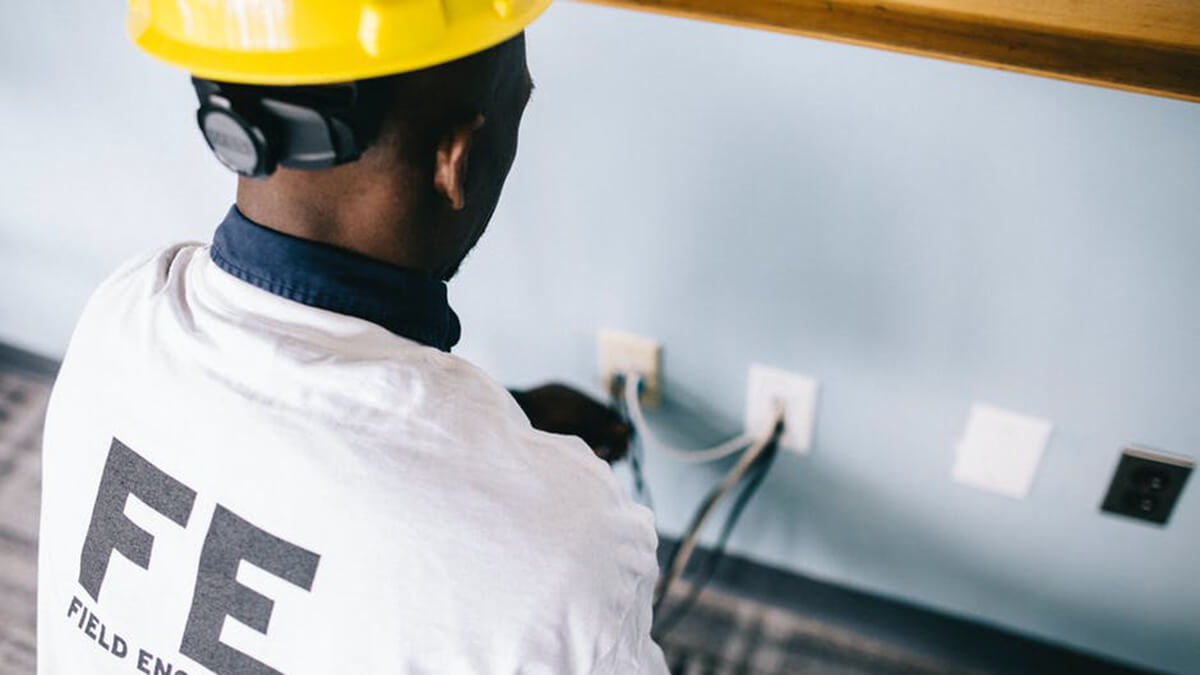According to the National Fire Protection Association, electrical failures and malfunctions are the second leading cause of home fires. This is why regular electrical inspections are crucial, as they help mitigate these risks and provide peace of mind for you and your family.
Contrary to what many homeowners may think, electrical inspection costs are relatively affordable. In this guide, we’ll discuss what you need to know about electrical inspections, their costs, and how to ensure they remain affordable.
If you’re considering quickly, and don’t want to bother with inspection costs or fees, iBuyer.com can help you sell your home as-is. Visit iBuyer.com today for a free home valuation, and no-obligation cash offers.
Electrical Inspection Cost
- When do you need a home electrical inspection?
- Is a general home inspection different than a home electrical inspection?
- What happens during a home electrical inspection?
- Average cost of electrical inspection on home
- Who can perform an electrical inspection?
- What are the most common home electrical issues?
- Planning to sell your home? Here’s what you need to know
- So, how much does an electrical inspection cost?
Compare Cash Offers from Top Home Buyers. Delivered by Your Local iBuyer Certified Specialist.
One Expert, Multiple Offers, No Obligation.
When do you need a home electrical inspection?
For the best assurance that your home electrical system is in good shape, getting a home electrical inspection once a year is a good idea. The Electrical Safety Foundation International recommends an inspection when you:
- Have purchased a previously-owned home
- Own a home that is over 40 years old
- Have recently completed a major renovation on your home
- Have added new major appliances to your home within the past 10 years
It is important to consider that homes that were built prior to 1960 don’t always have the electrical capacity to safely operate certain modern appliances. That’s because homes used to be on 60 amp electric systems.
Leading up to the 1960s, lifestyles were changing. We got microwaves and dishwashers and we needed the ability to plug all of our appliances in at the same time. So home electrical systems got a little boost up to 100 amps.
Now our homes and lifestyles require even more electrical capacity. So these days new homes are built with several dedicated circuits.
If you live in a home that was built prior to 1960, it’s very important that you get a home electrical inspection to make sure your home electrical system can support your electrical usage.
To prevent the risk of an electrical fire, homeowners can also schedule an electrical inspection once a year for safety.
Is a general home inspection different than a home electrical inspection?
Yes!
A home inspection is something you’ll need to do if you are planning to sell your home. If you’ve recently had a home inspection for that purpose, you might think you’ve done all you can do.
The purpose of a home inspection is to make sure the house you are selling is up to code and safe for the potential buyer. It also ensures a potential buyer doesn’t buy a home with lots of hidden issues.
Home inspectors are trained to inspect a variety of potential problems. However, they are not trained electricians.
A home inspector will do a visual check of your home’s electrical panel, circuit breakers, lighting fixtures, and major appliances. They’ll also check to make sure your outlets and circuits are properly grounded.
Often, a home inspector will recommend getting the expertise of an electrician.
An electrician will examine your home’s electrical system in much greater depth. They provide a more focused and thorough analysis of all of your home electrical systems and provide expert recommendations.
Trained electricians can also advise you on the best way to fix and improve your systems to make them even more safe and reliable. A home inspector cannot.
What happens during a home electrical inspection?
In the U.S., electricians must follow the National Electrical Code when they inspect a home. The NEC’s goal is to ensure homes are safe and protected against electrical fires and other electrical dangers.
The NEC gets revised every three years to make sure it is in line with the latest safety findings. It is the job of the electrician to assess whether all of your home electrical systems meet all of the legal safety standards.
Electricians are required to inspect your electrical system, wires, systems, appliances, and any other electrical components of your home.
This should include your electrical meter box, the condition of your wires, your electrical panel, and your circuit breakers. Electricians will also check your outlets, ground fault circuit interrupters, smoke detectors, and lighting.
An excellent electrician will recognize all common electrical issues. They will notice where the wiring of your home requires an upgrade. They will also point out any degraded wiring or oversized fuses.
A thorough electrician will verify the wattages on your lightbulbs, inspect all of your switches and outlets, check for shock hazards, and validate your surge protection.
Once the inspection is complete, the electrical inspector will give you a detailed checklist and a report. The checklist tells you everything they checked.
The electrician’s report will tell you what electrical repairs and upgrades are necessary. It will also tell you which of the repairs are most urgent or need to happen immediately.
The inspector should also provide photographic evidence of any issues they need to bring to your attention.
An electrician who goes above and beyond will also be able to recommend ways to make your home safe, ways to save energy, and perform risk assessment inspections for insurance purposes.
Average cost of electrical inspection on home
Electrical inspection prices vary from state to state and region to region. Your electrical inspection cost will depend on the size of your home and the type of wiring in your home.
On average, residential electrical inspections in the United States range in cost from anywhere between $100 to $200. They are relatively affordable for most homeowner’s budgets and they can save you from damage and loss.
Could there be extra costs?
The reality is, most homes have some type of electrical issue or another. So, when you get a home electrical inspection, mentally prepare for your home to have problems that require your immediate attention.
The cost to make the necessary repairs and upgrades will be in addition to the cost of the home electrical inspection.
How can I save on the cost of an electrical inspection?
The best way to save money on a home electrical inspection is to shop around. Get quotes and talk to a handful of qualified inspectors before you make your decision.
Try not to focus only on the price. The best way to protect your home is to go with an electrical inspector who has the licensing, experience, and references to back them up.
Who can perform an electrical inspection?
Only a licensed electrician or an electrical contractor can perform an electrical inspection. Requirements vary by state as do the processes associated with licensing for electricians.
When you hire an electrician to do your home electrical inspection, make sure they are licensed and carry insurance in the event of injury or damage to your property.
What are the most common home electrical issues?
When you get a home electrical inspection, it’s very common for the electrician to find some type of issue. The most common electrical issues include:
- Exposed wires
- Spliced wires
- Ungrounded three-prong outlets
- Painted outlets
- Double-tapped circuit breakers
- Reversed polarity
- Improperly modified electrical panels
- Missing knockouts in electrical panels
- Aluminum wiring
- Defective breaker panels
- Absence of ground fault circuit interrupters (GCFIs) in areas that come into contact with liquid, such as kitchens and bathrooms
Your licensed electrician will let you know if they find any issues with part of your electrical system. They will also advise you as to how to make the repairs and how soon to do it.
Planning to sell your home? Here’s what you need to know
When it comes to selling your home, many aspects of the process are negotiable. However, when inspections show that there are issues with the home that relate to safety, you will be required to deal with them.
Either you will be responsible for fixing the electrical system issues or you can negotiate the cost of the repairs into the buyer’s contract. There is a lot of room for negotiation when it comes to buying and selling a home.
However, this only goes for major electrical repairs pertaining to the safety of the home. You should not agree to pay for cosmetic electrical issues like replacing a lighting fixture or a light switch plate unless the switch is broken.
When selling your home, you don’t want to spend extra time and money making the kinds of minor changes the buyer can easily take care of on their own and to their preferences.
If you have questions about what is and what is not your responsibility when it comes to the results of your electrical home inspection, talk to your realtor. It’s best to handle these issues before your home goes on the market.
So, how much does an electrical inspection cost?
A home electrical inspection is an affordable way to make sure your home is protected against electrical fire hazards. Getting one when preparing to sell your home will avoid unexpected costs and repairs during closing.
How much does an electrical inspection cost? The inspection won’t cost you more than $400 on average.
Looking to sell your home? The first thing you need to do is get a home valuation estimate. You can do it in the comfort of your home, without hiring a realtor or appraiser.
Try our home value estimator and learn the value of your home today!
Instant Valuation, Confidential Deals with a Certified iBuyer.com Specialist.
Sell Smart, Sell Fast, Get Sold. No Obligations.
Reilly Dzurick is a seasoned real estate agent at Get Land Florida, bringing over six years of industry experience to the vibrant Vero Beach market. She is known for her deep understanding of local real estate trends and her dedication to helping clients find their dream properties. Reilly’s journey in real estate is complemented by her academic background in Public Relations, Advertising, and Applied Communication from the University of North Florida.




